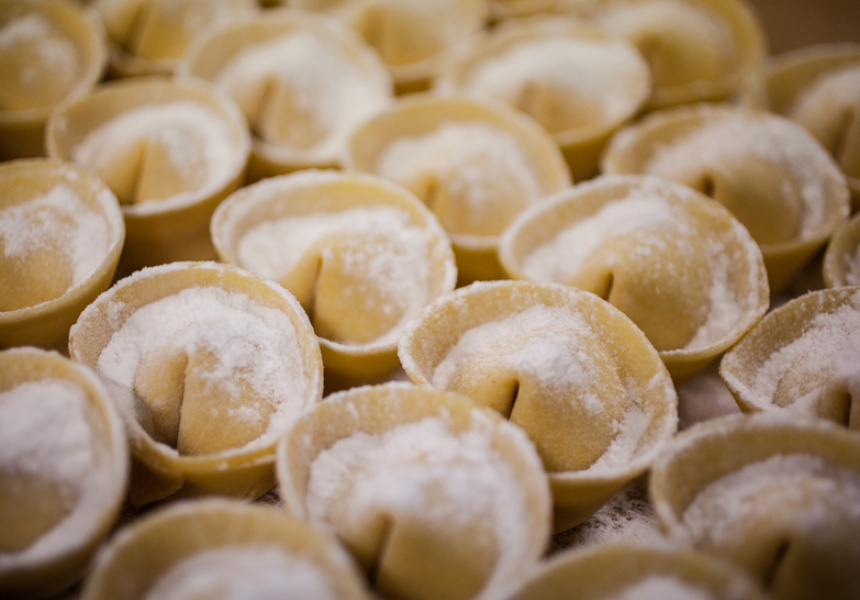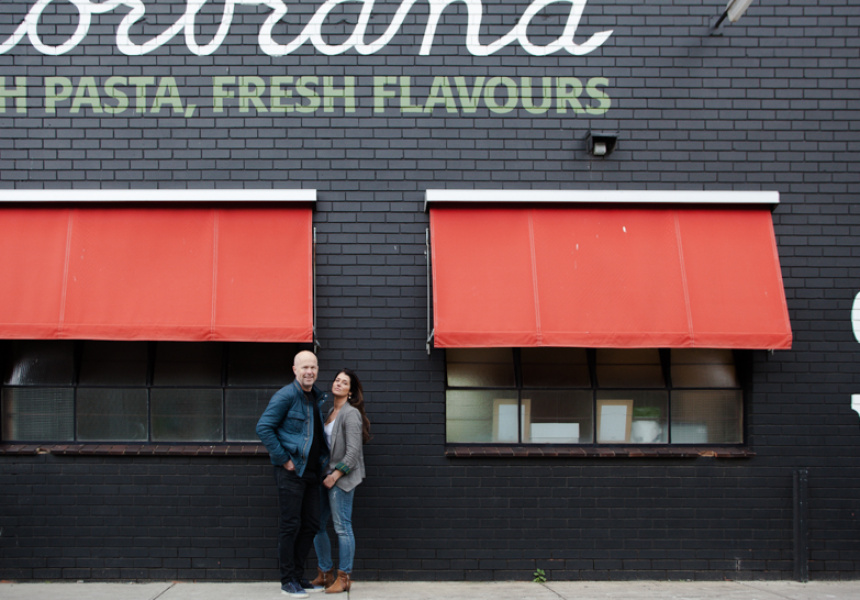Twenty years ago, handmade pasta wasn’t really a thing. Sure, they’d been making it in Italy for generations and maybe a chef would scratch it on the specials board, but picking up some fresh linguine simply wasn’t done.
These days, however, we’re loath to open a packet for anything besides spaghetti. Cindy Sargon and Michael Coade, who started rolling pasta in their apartment in 1993, can take some credit for introducing us to the good stuff.
These days, Alligator Pasta appears on plates sent out by Neil Perry, Matt Moran and Maurice Terzini. You’ll eat it if you’re flying Qantas, Singapore or Korean Air. It’s sold in Thomas Dux and David Jones.
We think you might like Access. For $12 a month, join our membership program to stay in the know.
SIGN UPBut the Melbourne pasta institution started resolutely small. “We started out in our little flat in Elwood,” admits Sargon. “I never used to tell anyone that story because it was highly illegal, but I think 20 years down the track we can come clean.”
The husband-and-wife team began unrolling and cutting pasta on their kitchen bench, but were forced to find new premises when their friends’ restaurants began demanding more. They’d clearly found their niche. “When we started, there wasn’t a lot of range,” recalls Sargon. “Pasta is one of those things that we eat daily now – people aren’t scared of cooking it and there’s good quality available. But 20 years ago there was Donnini’s and that was about it.”
Coade attributes some of the pasta’s early popularity to their relatively unusual fillings. Unimpressed with the generic “meat” pastas on the market, Coade used his background as a chef to experiment. Instead of beef, they used veal and caramelised onion, salmon instead of spinach, Hickory-smoked tomatoes, lobster and prawns, and West Australian black truffle. “If we’re doing the standard flavours every day, it doesn’t allow for much creativity,” says Sargon.
Undeniably, the pasta-makers have a taste for fancy flavours. But they insist that the fundamentals of their product are paramount. “We buy a really good quality durham semolina, which is very hard flour. That’s the key,” explains Coade. “All our flour comes from the outback of New South Wales. It really does come from those really arid back blocks where it’s really dry.”
It’s the density of the flour that gives fresh pasta the texture of its “bite”, which Coade rates as its most important quality. That bite, he believes, is lost once pasta’s dried. “Dried pasta, there’s only a couple of varieties that work. Spaghetti works and I think penne is quite good,” he admits. “But I find commercial linguine is too thick. It’s never right.”
Instead of their kitchen table in Elwood, the pair now work from a small factory in Yarraville. They employ 15 staff, who are expertly trained to fold the pasta by hand, or swirl it into a little braid of linguine. Their pasta even fuelled the Sydney Olympics (“Athletes eat a lot of pasta,” says Coade. “A lot.”).
But while Alligator Pasta has grown, it hasn’t necessarily become more complicated. “I just love something really simple, like a linguine a olio. Maybe with a little crab,” says Sargon. “That’s my perfect afternoon.”


